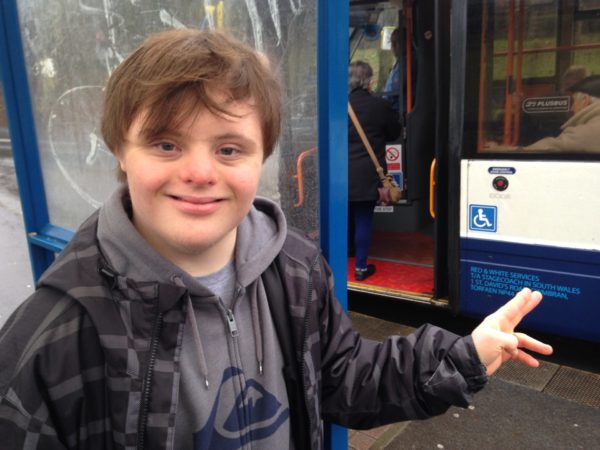Travel training
Studies have shown that transport problems can be a significant barrier to social inclusion, and in turn, employment. We wanted to ensure that this was not a barrier to young people working with us on the Engage to Change project. People with a learning disability and/or autism may need the support of travel training as a means of overcoming a lack of skills or confidence in navigating the journey to and from work.
What is travel training?
 Travel training covers a wide range of assistance and support provided to anyone who may require it. It is a series of processes aimed at ensuring an individual is able to make a journey independently and safely.
Travel training covers a wide range of assistance and support provided to anyone who may require it. It is a series of processes aimed at ensuring an individual is able to make a journey independently and safely.
New skills may need to be taught such as:
• Reading a timetable
• Keeping safe
• Telling the time
• Appropriate behaviour
• Money skills
Travel trainers
Job coaches from ELITE and Agoriad offered travel training to the young people they were working with as part of the Engage to Change project. They had to be excellent communicators and have the ability to understand others’ needs, in particular the needs of vulnerable populations. The trainees’ existing travel skills and difficulties were assessed at the vocational profiling stage. This allowed us to build a training programme around an established baseline, tailored to each individual. The programme involved road safety, personal safety, money skills, time skills, communication skills, and so on, depending on individual needs.
Phases
Accompanied travel formed the main part of the travel training. At first, the job coach joined the trainee on the route from beginning to end. Repetition enabled the trainee to learn the route and to build their confidence. The number of repetitions was different dependent on the individual and their progress before the shadowing stage began and the job coach gradually withdrew support. The withdrawal process happened in stages, with continuous assessments undertaken at each stage. The first stage was walking at a safe distance behind the trainee, the second was meeting the trainee at the bus stop, and so on. The final stage was when the trainee was able to complete the journey on their own in a safe manner.
